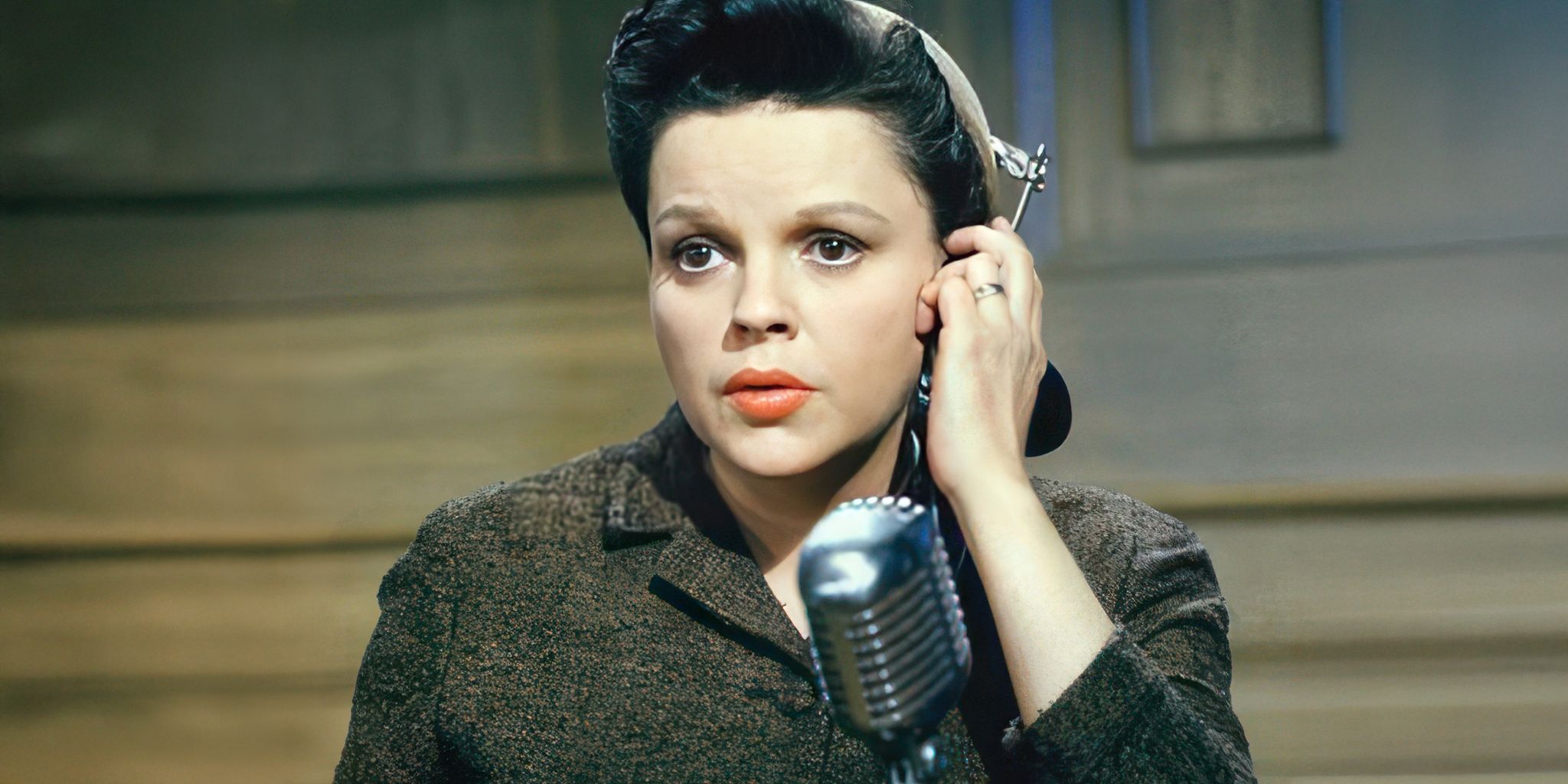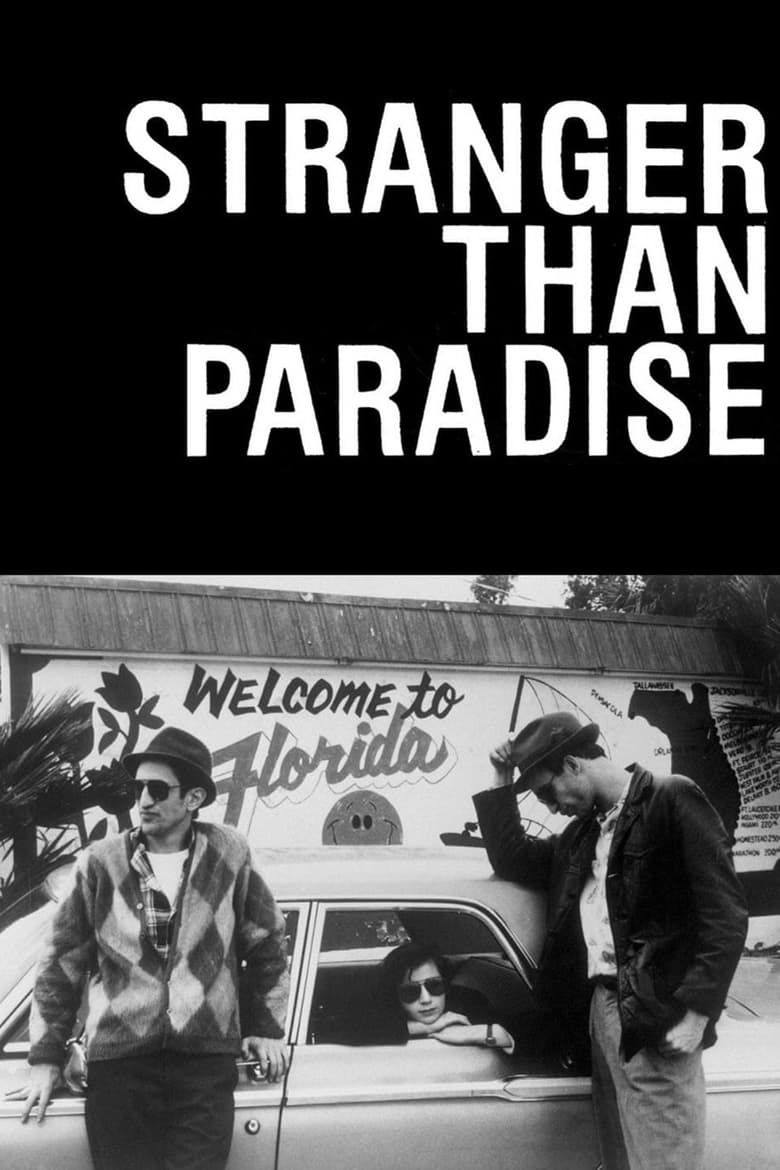Jim Jarmusch is one of the most singular American filmmakers of the last several decades, as he is an artist who has refused to compromise, and never given in to the influence of the studio system. Jarmusch’s films may be strange, and even alienating, to a crowd of non-cinephiles, but he has always remained consistent with his dour stories, unusual dialogue, and comedic approach to existentialism. Although his first student film, Permanent Vacation, was celebrated in some arthouse circles, Jarmusch’s peculiar road trip comedy Stranger Than Paradise is among the most impressive directorial debuts of all time.
Those who traditionally look to cinema for plot, character development, and sensory components may be baffled by Jarmusch’s approach, as he is an expert in minimalism and gradual progression. Given that Stranger Than Paradise was shot with no coverage, and often includes takes that span several minutes, it can feel like watching a staged production, albeit one that doesn’t feature a whole lot of action. However, Stranger Than Paradise is easily one of Jarmusch’s funniest and most accessible films, as the blend of nihilism and absurdism make for some great moments of uncomfortable humor.
What Is ‘Stranger Than Paradise’ About?
Stranger Than Paradise follows the exploits of a group of three friends whose trips all end up resulting in extended periods of waiting and interacting with unusual strangers. The gambler Willie (John Lurie) has his life in Cleveland turned upside-down upon the arrival of his cousin Eva (Eszter Balint), who begins to slowly develop romantic feelings for his best friend, Eddie (Richard Edson). Although Willie tries to avoid situations in which the two could interact, Eddie and Eva begin to discover their passions for one another, which makes it all the more devastating when she is forced to return to her home. Willie and Eddie eventually travel to meet Eva in Cleveland and plan to take her back with them to New York City, even though she already has a new boyfriend. A decision to change directions and head to Florida takes their trip in an unexpected direction, as they become involved in a gambling scheme that slides into criminal activity.

Related
This 93% Rotten Tomatoes Post-War Epic Is Among the Greatest Legal Thrillers Ever Made
No objections from literally anyone.
Stranger Than Fiction works as an observational comedy about different areas and cultures, as Jarmusch is able to show both the subtle and obvious distinctions that make New York, Cleveland, and Florida so unique. Considering that the film takes place outside of any obvious historical landmarks or major tourist destinations, it feels like a more authentic take on what life in those states is like for working-class people. It’s amusing in particular to note how self-important Willie seems to be about the superiority of New York, as his life is clearly an interminable one that does not provide him with much joy. Although traveling to different states does get him to open up in some ways, as he begins to show more respect to his sister, he also takes up his bad habit of gambling once more when in Florida. The overarching theme of Stranger Than Paradise, which is inherent to many Jarmusch films, is that of eventuality. Even though the characters may have convinced themselves that they can make active decisions to make their lives better, they’re largely bound to repeat the same mistakes.
‘Stranger Than Paradise’ Is the Purest Distillation of Jim Jarmusch’s Style
Jarmusch has often applied his morose, conversational style of filmmaking to different genres, including Western (Dead Man), action (Ghost Dog: Way of the Samurai), horror (Only Lovers Left Alive), anthology (Coffee and Cigarettes), and spoof films (The Dead Don’t Die), but Stranger Than Paradise is a stripped down production that is entirely reliant on dialogue and situational humor. Even though the nature of Jarmusch’s style is repetitive, it becomes gradually hilarious to watch the characters as they are trapped within the same situation with no means of escaping it. Jarmusch would go on to develop working relationships with more established stars, such as Bill Murray and Adam Driver, but there is a beauty to the fact that the cast of Stranger Than Paradise is composed of relative unknowns. Since the viewer does not have any preconceived notions of what these actors are like, it is easier for them to become completely immersed in the characters.
There’s a refreshing cynicism to Stranger Than Paradise that made Jarmusch’s vision so bold, as it was released in an era in which independent cinema often tried to offer “quirky, life-affirming” alternatives to mainstream Hollywood. Although a film this unusual and sporadic in style could never be deemed to be “depressing,” it is encouraging to see that Jarmusch isn’t interested in appeasing his audience with a clean, convenient ending that would negate the realism with which he crafted the story. Jarmusch has made many masterpieces at this point in his career, but for those interested in what defines his unique sense of humor, there is no better place to start than with Stranger Than Paradise.

Stranger Than Paradise
Stranger Than Paradise
- Release Date
-
October 1, 1984
- Runtime
-
89 minutes
- Writers
-
Jim Jarmusch
- Producers
-
Otto Grokenberger
-

-

-

-

Cecillia Stark
Aunt Lotte







